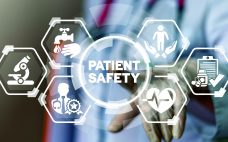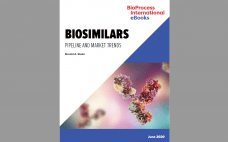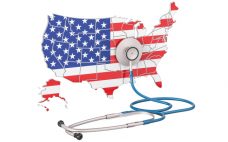In the biopharmaceutical industry, technology transfer refers to transfer of any process, together with its documentation and professional expertise, between development and manufacture or between manufacturing sites (1). This operation is common in the biopharmaceutical industry for a number of structural reasons. They include the dichotomy between small, innovation-based drug companies and large ones able to conduct late-phase clinical development and endowed with manufacturing capacity; the high capital cost of biopharmaceutical plants, which makes contract manufacturing attractive; and the need…
Business
Development of Patient-Focused Commercial Specifications: Understanding Clinical Relevance and Criticality of Quality Attributes
The CASSS chemistry, manufacturing, and controls (CMC) Strategy Forum on 23 January 2019 in Washington, DC, was entitled, “The Development of Patient-Focused Commercial Specifications Through Understanding of Clinical Relevance and Criticality of Quality Attributes.” This forum covered the definition, identification, control, and management of patient-focused attributes throughout the life cycle (from discovery through approval) of biological products, including vaccines. Participants investigated how to differentiate through the product development life cycle which attributes are “clinically meaningful” from those applied for manufacturing…
Finding Efficiencies to Accelerate Biopharmaceutical Development
An old engineering adage says that in any technical project, you can get speed and/or quality and/or cost-efficiency — but you never get to have all three. The idea is that emphasizing any one of those parameters necessarily deemphasizes one or both of the others. For most of the biopharmaceutical industry’s early years, companies operated on that assumption. Many organizations saw speed as the weakest link that could be more or less ignored; others had money to burn. The smartest…
Biosimilars Pipeline and Market Trends
Most biopharmaceutical industry experts now consider biosimilars to be mainstream products, indicating that the field has progressed immensely over the past 10 years. Nevertheless, when comparing approvals and commercial offerings across the globe between 2013 and 2020, it becomes clear that some regions welcome these therapies more than others do. Western European biosimilars markets continue to be kind to these drugs’ production, distribution, and coverage; and companies headquartered in Asia and the Pacific Rim increasingly are getting involved in biosimilars…
Life-Science Lawsuits: Learning from the Ordeal
Life-science companies often are cast into the role of the “canary in the coal mine” — the first parties to be targeted and hit by lawsuits. Such companies depend on discovery, trial and error, and ultimately efficacy. None of that is a sure bet. At the same time, life-science companies are raising funds constantly to finance their work. Investors and lenders seeing less-than-projected or even “expected” results might sue directors and officers for mismanagement, misrepresentation, or misleading financial statements. This…
Virtual Audits: A New Reality in the World of COVID-19
The novel coronavirus disease 2019 (COVID-19) pandemic has every industry seeking out ways to accomplish time-sensitive activities using a number of virtual approaches. This is certainly true in the biopharmaceutical sector, in which good manufacturing practice (GMP) audits are required to manufacture medicinal drug products for human use. Examples include supplier/vendor audits, mock inspections, and preapproval and prelicense inspections (PAIs and PLIs) conducted by sponsors and regulatory authorities. Auditors usually perform such activities on site and only sometimes remotely. In…
Cell and Gene Therapies Get a Reality Check: A Conversation with Anthony Davies of Dark Horse Consulting Group
As founder of cell and gene therapy (CGT) specialist firm Dark Horse Consulting Group in California, Anthony Davies speaks from a quarter century of experience including former positions at Onyx Pharmaceuticals, Syrrx, ZymeQuest, Serologicals, Geron Corporation, Capricor, and 4D Molecular Therapeutics — and he currently serves on the board of directors for TrakCel and the scientific advisory boards for Akron Biotech and BioLife Solutions. In his plenary address at the Phacilitate 2020 Leaders World conference (part of Advanced Therapies Week…
A Healthy Biosimilars Market Promotes Innovation and Affordability
Innovative drug manufacturers require an opportunity to recoup capital and opportunity costs that they incurred to develop new medicines. Once patents have expired, competitors should be empowered to promote widespread affordability. An exclusivity period followed by a competitive market would promote the otherwise incompatible objectives of incenting innovation and promoting affordability. That careful balance exists for small-molecule medicines but not yet for biologics. The innovation side of the biologics market is working as intended, but a robust market for lower-cost…
Patient Access Tops the List of Advanced Therapy Milestones at Phacilitate 2020
In a highly anticipated presentation at the 2020 Phacilitate Leaders World event — part of Advanced Therapies Week, along with the World Stem Cell Summit in Miami, FL — Susan Nichols (chief executive officer for Falcon Therapeutics), highlighted 10 events from 2019 that drove conversation, investment, and innovation in regenerative medicine. Although clustered regularly interspaced short palindromic repeats (CRISPR), business consolidations, and production capacity powered the cell and gene therapy (CGT) space in 2019, a new proactive focus on patient…
Discussions at Phacilitate 2020 on Business, Manufacturing, and Future Trends
Presenters in the three main program tracks at the Phacilitate Leaders World conference in Miami, FL, this past January represented sponsor-developers of cell/gene-therapy (CGT) products, contract service providers, and technology suppliers to the industry. Topics include process and product development strategies for advanced therapies, regulatory and inspector expectations, automation and closed-system processing, the choice between in-house and outsourced manufacturing, quality assurance and control, analytical methods, viral vectors, and artificial intelligence and Industry 4.0. At the end of each session, presenters…










